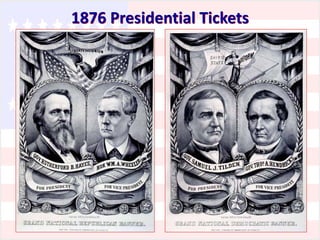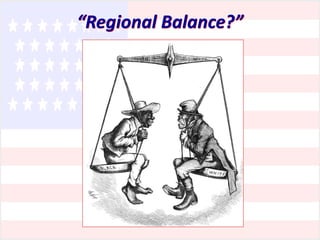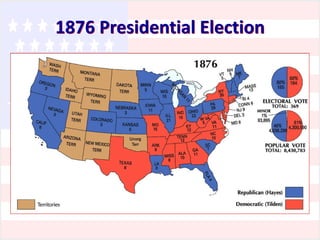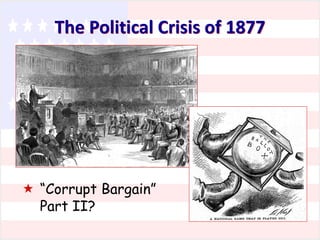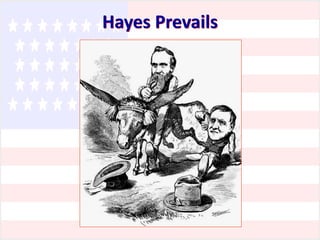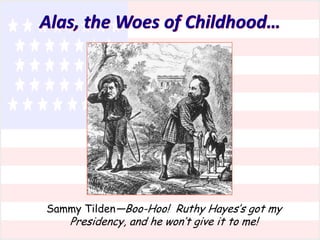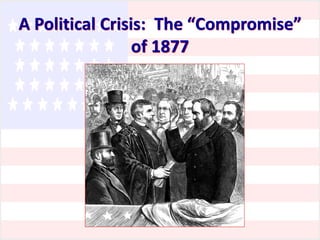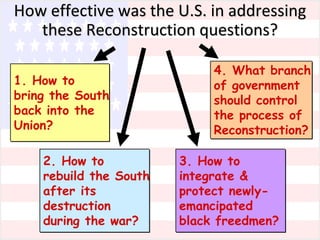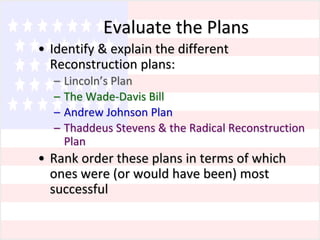President Lincoln's Reconstruction plans focused on quick readmission of Southern states once 10% of voters swore loyalty oaths. Congress opposed this lenient approach and passed the stricter Wade-Davis Bill, which Lincoln pocket vetoed. Andrew Johnson largely continued Lincoln's conciliatory policies, pardoning ex-Confederates and allowing them to regain power. This outraged Republicans and led to increased protections for freedmen in the Civil Rights Act of 1866 and the 14th Amendment. Ultimately, the Radical Republican plan implemented by Congress through military occupation and enforcement acts was deemed most effective at reconstructing the South and protecting freedmen, though its goals were only partially achieved and enforcement broke down.

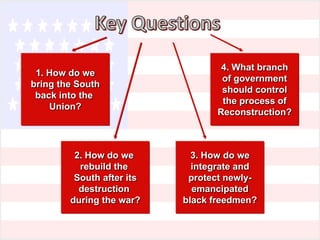

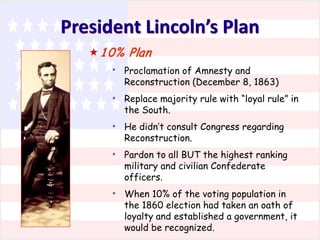
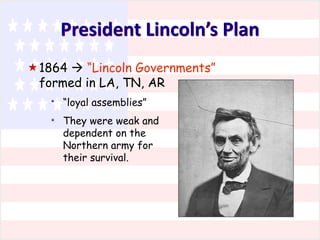
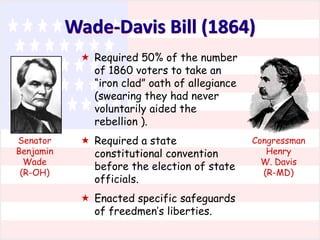
![W ade-Davis Bill (18 6 4 )
“Iron-Clad” Oath.
“State Suicide” Theory [MA Senator
Charles Sumner]
“Conquered Provinces” Position
[PA Congressman Thaddeus Stevens]
President
Lincoln
Pocket
Veto
Wade-Davis
Bill](https://image.slidesharecdn.com/reconstructionbest-131110075722-phpapp01/85/Reconstruction-7-320.jpg)
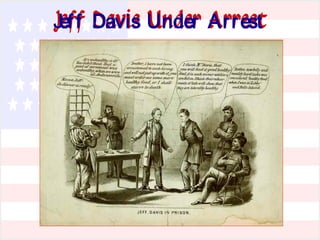
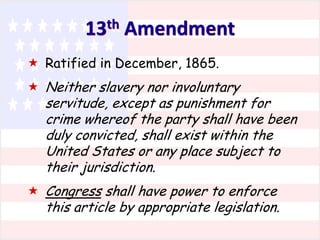
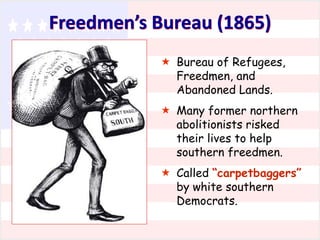
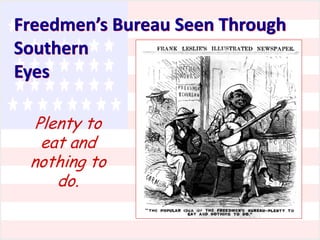
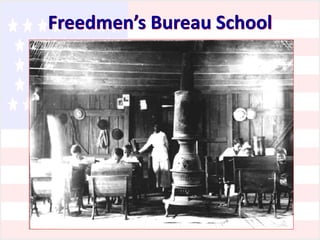

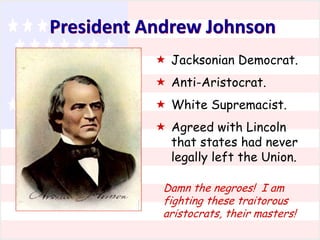
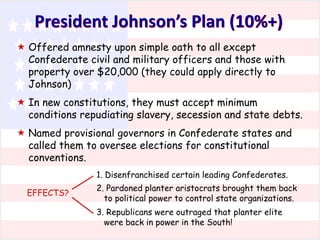
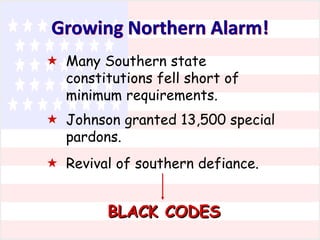
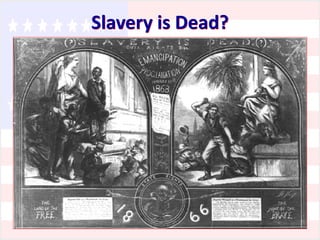
![Black Codes
Purpose:
*
*
Guarantee stable labor
supply now that blacks
were emancipated.
Restore pre-emancipation
system of race relations.
Forced many blacks to
become sharecroppers
[tenant farmers].](https://image.slidesharecdn.com/reconstructionbest-131110075722-phpapp01/85/Reconstruction-18-320.jpg)
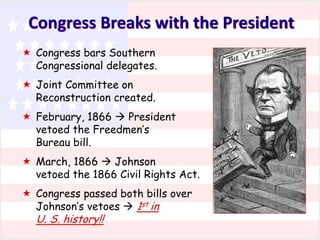
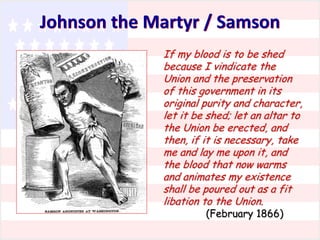
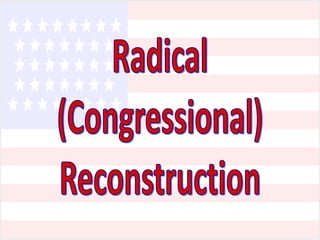
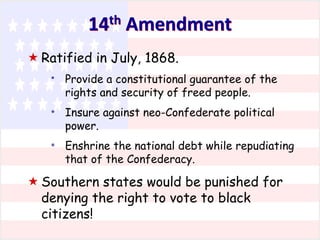
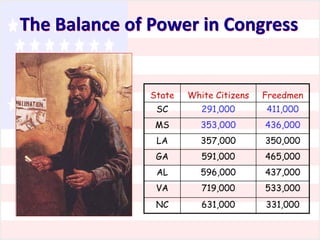
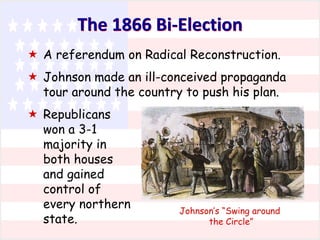
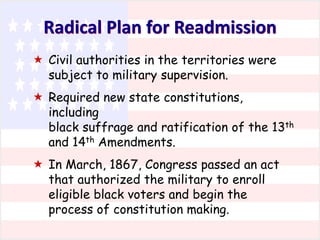
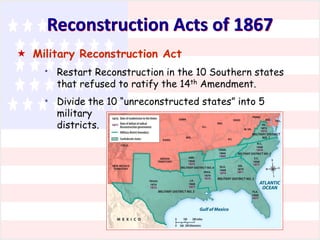
![Reconstruction Acts of 1867
Command of the Army Act
*
The President must issue all
Reconstruction orders through
the commander of the military.
Tenure of Office Act
*
The President could not remove
any officials [esp. Cabinet members]
without the Senate’s consent, if the
position originally required Senate
approval.
Designed to protect radical
members of Lincoln’s government.
A question of the
constitutionality of this law.
Edwin Stanton](https://image.slidesharecdn.com/reconstructionbest-131110075722-phpapp01/85/Reconstruction-27-320.jpg)
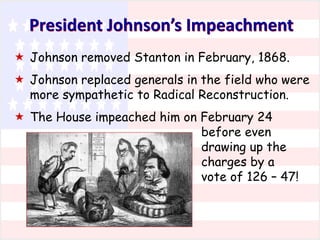
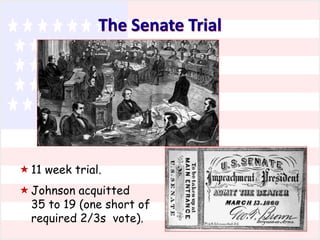
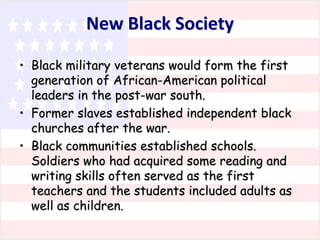
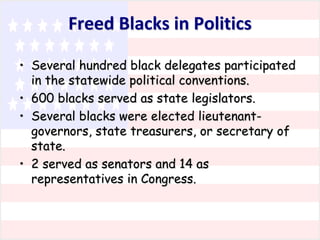
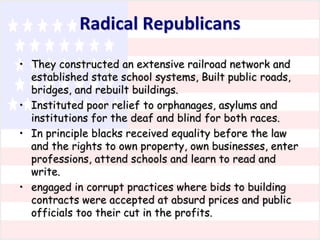
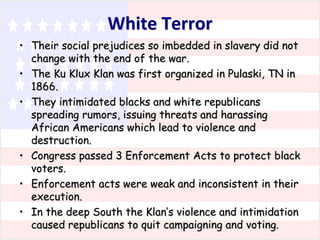
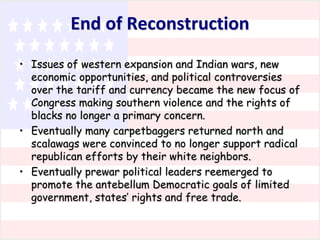
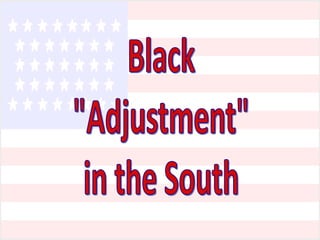
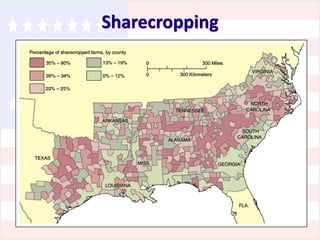
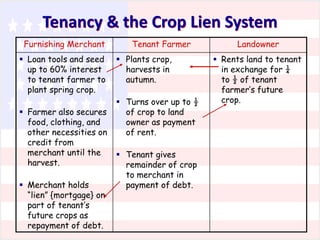
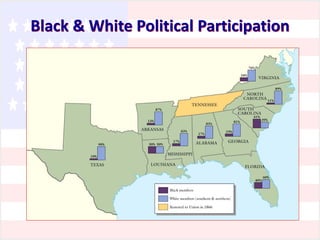
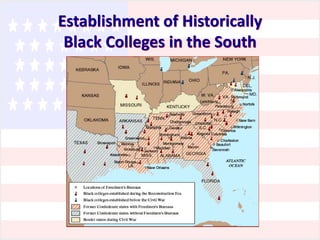
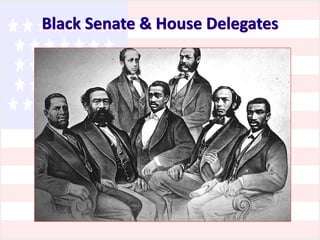
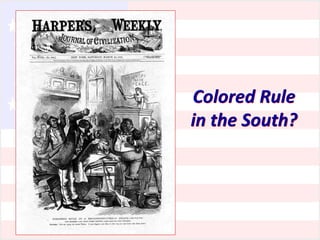
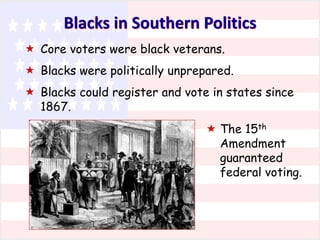
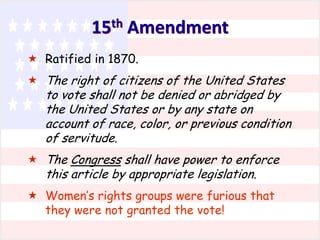
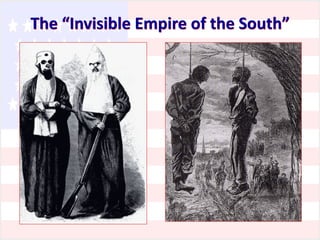
![The Failure of Federal Enforcement
Enforcement Acts of 1870 & 1871
[also known as the KKK Act].
“The Lost Cause.”
The rise of the
“Bourbons.”
Redeemers
(prewar
Democrats and
Union Whigs).](https://image.slidesharecdn.com/reconstructionbest-131110075722-phpapp01/85/Reconstruction-45-320.jpg)
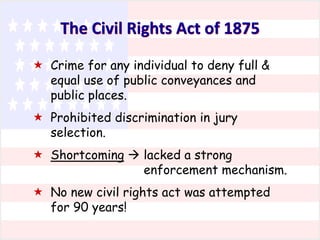

![Northern Support Wanes
“Grantism” & corruption.
Panic of 1873 [6-year
depression].
Concern over westward
expansion and Indian wars.
Key monetary issues:
*
*
should the government
retire $432m worth of
“greenbacks” issued during the Civil War.
should war bonds be paid back in specie or
greenbacks.](https://image.slidesharecdn.com/reconstructionbest-131110075722-phpapp01/85/Reconstruction-48-320.jpg)
